|
A Papal Visit to any country comes with a long list of preparations and precautions to ensure that it goes off without a hitch. Pope Francis’ visit to the United States last week was no exception. Many months and countless hours went into the planning of his three city tour by hundreds of people. As we look back on this historic visit, we know that it truly was overall a successful visit. Emotions come with any Papal Visit, and again this past week was no exception. Everywhere that our Holy Father went, he was greeted with tremendous emotion from those he encountered. Whether it was the faithful at the Canonization Mass of Junipero Serra, members of Congress, the families at the 9/11 memorial, immigrant families at Independence Mall, the prisoners of the Curran-Fromhold Correctional Facility, the World Meeting of Families attendees, schoolchildren at the airports, or dozens of Bishops, Priests, and consecrated men and women religious, everyone seemed to have a powerful experience. Even though I was present at the Canonization Mass, my emotions surfaced later as I watched the Holy Father’s address to Congress. Even from my own home, his words and message brought me to tears and gave me hope that those representing us politically would take his words to heart. I think that perhaps these powerful emotions have much to do with the distance that the Pope usually has from us here in the United States. While Catholics (and many non-Catholics) look to the Holy Father for guidance, his physical distance from us makes it difficult for him to elicit palpable emotions. By bringing his message directly to us, both in word and deed, Pope Francis makes us stop and take in the moment--letting us find the joy within us. Oftentimes this manifests itself in tears--not tears of sadness but tears of joy. This joy stems from the knowledge that Christ’s vicar is here among us, showing us that no matter how important we may think he is—he is still one of us. Cardinal Donald Wuerl of Washington has indicated that the Holy Father’s visit should be more than a celebration; it should be an encounter. Over these last few days, encounters with the Holy Father have changed the lives of so many - not just those that he personally met. His message of love is one that resonated with the thousands of people that came to catch a glimpse of him. This message is one that we must continue to spread. We must take the emotion that was brought to the surface and continue to help the Holy Father spread his message of love for all people and our common home. We must bring this encounter to others. In his homily at the Canonization Mass of Junipero Serra, Pope Francis asked us to move forward. In his homily at the Cathedral of Sts. Peter and Paul in Philadelphia, he reminded us that we must be missionary disciples: "One of the great challenges facing the Church in this generation is to foster in all the faithful a sense of personal responsibility for the Church’s mission, and to enable them to fulfill that responsibility as missionary disciples, as a leaven of the Gospel in our world.” Pope Francis is asking us to act, to show others that our mission in life is love for all. The emotions that we experienced while he was here should not fall away now that he is gone. Together let us take the emotion that we had while he was here and allow it to permeate our lives and impel us to live out the charge he has given us.
0 Comments
They bought into the lie—that nothing had changed, that their dreams were stifled, that death prevailed. The locked doors reflected their locked hearts. Like anyone, they were afraid, inconsolable, at the point of despair. Save one—a virgin. She continues to model to us today what it means to live faith, what it looks like to be a disciple.
The fear of the disciples in the upper room is understandable. They had abandoned the man whom they had left everything to follow for three years. The same man they had pledged to follow unto death had been tortured and killed as their backs were turned, as they cowered for their own lives. Their hopes of a restored Jewish kingdom, a glorious king from the line of David, freedom from Roman rule and the return of God’s presence to the Temple seemed to be nailed to a cross on Golgotha, laid in a tomb hewn from rock. They had yet to see God’s plan amidst the perceived failure. How could this be God’s plan? It was so unlike their own. Their fear is our own. It is the fear of unmet desires, of unworthiness, of death, of uncertainty, of perceived silence. Like the disciples, we often fail to see God’s plan in our lives. We look around in despair and sense that He is silent. We live the reality of death, confusion and suffering and say, “nothing good can come from this.” But as the disciples quickly realized, our ways are not God’s ways. Our wills are not yet one. Much stands in the way: selfishness, greed, egoism, materialism, pride. All changes with the coming of the Holy Spirit. What makes a law-abiding Jew abandon his persecution of Christians in favor of joining them and proclaiming the Christ to Jerusalem and Rome? What makes uneducated fisherman leaders of the universal Church and martyrs for the faith? What makes the son of a wealthy Italian merchant the begging founder of a religious order and a friend of the poor? What makes a cloistered nun in Lisieux a Doctor of the Church? What makes a German priest in Auschwitz volunteer to die in place of a father? What makes a modern day Italian mother and doctor offer her life for that of her child? The Advocate, the Holy Spirit. It is the Holy Spirit who is the game changer for the Church—what will now set the disciples apart from the whole world and what continues to set Christians apart today. The Holy Spirit is the active agent of conversion in man, the third person of the Trinity who opens up the Scriptures and sets our hearts on fire. It is the Holy Spirit who enables us to live our mission. The Holy Spirit, God’s love, is the difference between the fearful men in the upper room and the on-fire disciples of Christ preaching the Gospel and converting thousands in a single day. In the Gospel today, Jesus prays for his followers in the Garden of Gethsemane while also speaking directly to you and me. He prays for something seemingly impossible: “that they may all be one” as the Trinity is one. Christ speaks these words not to frustrate his followers but to call them to a perfection possible through God alone. He utters these precious words knowing he will be sending the Holy Spirit to enable man to do this. The goal is outward. This communion—the call to unity—must lead to mission: “that the world may know that you sent me and that you loved them.” God’s love is efficacious. It cannot be contained but must be proclaimed to the world. Only God could deign to give man so dignified and impossible a call. And only God could enable man to fulfill it. This high priestly prayer of Jesus (which encompasses John 15-17) is one of my favorite parts of Scripture. It is so imbued with Christ’s love for us. The purpose of the Incarnation is about to be revealed. Christ is living his last moments and wants to remind his followers, you and me, why he came: to reveal the Father, to invite man to eternity with Him and to assure man of his lovable-ness in the eyes of God. This love of God is meant to abide in us and reach out from our hearts to the hearts of others. This is only possible through the Eucharist, which physically is Christ’s love present in us and which is made possible through the Holy Spirit. God himself calls us, but God himself equips us…with Himself. It is astounding to what we are called: to holiness, divine love. This is the Christian destiny, but not our inclination. Like the disciples, so quickly do we turn inward. So quickly do we lock the door in fear. God calls us to sanctity, which can only be achieved after an experience of the fire of God’s love. We call this Pentecost, the same outpouring of the Holy Spirit that we receive in Baptism and Confirmation. The same outpouring of the Holy Spirit that we receive every Sunday in the form of the Eucharist. Are we being transformed by this grace or do we remain in the upper room? I challenge you to go back to your own story, your own moments of conversion. When did you fall in love with God? Have you? Only armed with the certainty of being loved will we be able to love others and live out the communion and mission Jesus calls us to. And so we call upon the Holy Spirit, the love of God Himself, who was breathed out upon the disciples at Pentecost in tongues of fire. We ask the Holy Spirit to breathe new life within us, within the Church. We ask the Holy Spirit to transform us with the fire of God’s love. This results in unlocked doors, an empty room. The disciples emerged, transfigured. Will you? Kate Flannery is pursuing a Master's degree in Leadership for the New Evangelization at the Augustine Institute in Denver and graduates in May. Humanity can sometimes let us down. This is a lesson I have learned in the past few years in dealing with some troubling times in my family. People are often untrustworthy, imperfect, and make mistakes, and this is true even in the closest of families. Each one of us carry bruises and pain from times when we have been let down by our neighbors, family, and those we’ve trusted. The weight of sin can be too much for some of us, and it pulls us deeper and deeper away from hope. That is where trust in God comes into the picture. When the world burdens us with failures, broken promises, and sadness, Christ is there to pick us up with strength, promises of eternity, and joy in the Lord! Psalm 25: 4-7 reminds us that we need to trust in the Lord’s goodness and forgiveness to guide the life journeys we’re on:
“Show me your ways, Lord, teach me your paths. Guide me in your truth and teach me, for you are God my Savior, and my hope is in you all day long. Remember, Lord, your great mercy and love, for they are from of old. Do not remember the sins of my youth and my rebellious ways; according to your love remember me, for you, Lord, are good.” Throughout the Bible, we see God’s promise of hope and forgiveness. Learning from his example, it is our job to imitate the Lord’s forgiveness with those who have wronged us, and accept forgiveness in return. When Peter asked Jesus in Matt 18: 21-22, “Lord, how often shall my brother sin against me and I forgive him? Up to seven times?,” what was the response? “Seventy times seven” (….or more of course). We must strive to imitate this forgiveness in our everyday lives, too. Forgiveness is necessary for cleansing our hearts, but Jesus calls us one step further yet: to love as he loves. It can be very simple to love or it can be very difficult, the choice is our own. During some of the most difficult years with my family, I knew that I had a decision to make. I could either harbor resentment towards those who hurt me, or I could try to forgive them and love them in whatever way I possibly can. Today, I still can become irritated when tensions rise, but I’m trying to look at the situation through a lens of love. Even if it breaks your heart, even if all efforts seems lost, by showing love to your neighbors and forgiving transgressions, you are imitating Christ whether you realize it or not. Strive for that same goodness and righteousness with which Christ instructed his disciples: as I have loved you, so you must love one another. Go out and do the same! Krissy Kirby is a recent graduate of The Catholic University of America in Washington D.C., and will soon be teaching Kindergarten in the Archdiocese of Washington. “Then God said, ‘Let Us make man in Our image, according to Our likeness; and let them rule over the fish of the sea and over the birds of the sky and over the cattle and over all the earth, and over every creeping thing that creeps on the earth.’ God created man in His own image, in the image of God He created him; male and female He created them. God blessed them; and God said to them, ‘Be fruitful and multiply, and fill the earth, and subdue it; and rule over the fish of the sea and over the birds of the sky and over every living thing that moves on the earth.’ … God saw all that He had made, and behold, it was very good” (Genesis 1:26-28, 31).
From this exaltation we begin our reflection on Father’s Day. Many countries set aside the third Sunday of June in honor of both fathers and fatherhood. It’s usually the time when dads are shown the appreciation of their families for all their love, protection, devotion, guidance, caring, wisdom, teaching, entertainment, discipline (ouch), cooking, support, shuttling around, mentoring, coaching, and/or generosity. It’s a totally fair trade-off but also no secret: fatherhood demands much of a man. Unfortunately, not all are blessed to have a father in their lives, and there are many circumstances which contribute to this. Thankfully, God Himself has provided a model for human fatherhood, someone who He entrusted His own Son to during the crucial formative years of Jesus’ human life: St. Joseph. We look to Saint Joseph as the perfect example of paternity, as he was given the honor of being the guardian of the Holy Family. St. Joseph is not directly quoted in scripture, but what about his actions? Do they speak louder than his words (or lack thereof)? It seems that Joseph’s most frequent biblical deed besides traveling is something men can easily relate to— sleeping before taking action (see Matthew 1:20 and 2:13)... but surely there must be more to being a father than this!? Of course there is! To me, being a true (Christian) father means being a Christ-like man who bears witness to the perfect love of God, and who is a virtuous man to his children, spouse, and to all he encounters. We hear a lot about Mary’s hugely consequential “Yes” (see Luke 1:38) to the Father’s will at the Annunciation and how this is the Blessed Mother’s complete giving of herself to God. In his own soft-spoken way, though, Joseph also gave his own “Yes” and similarly submitted himself to the will of God. Even with the extraordinary circumstances of his betrothed’s pregnancy, Joseph, in the end, places his trust in the divine will and accepts the paternal role God offers him as part of His plan. Like Mary, Joseph selflessly placed whatever desires and plans he had for his future second to what he had now been called to become— Jesus’ guardian and protector. It is this obedience that makes Joseph such a worthy role model for all men. Being righteous (see Matthew 1:19), Joseph knew he did not have all the answers; let alone the experience, for the fatherhood he was being called to. Instead, he stepped aside in faithful acceptance of God’s will. As Saint John Paul II so beautifully put it: What emanates from the figure of Saint Joseph is faith. Joseph of Nazareth is a “just man” because he totally “lives by faith.” He is holy because his faith is truly heroic. Sacred Scripture says little of him. It does not record even one word spoken by Joseph, the carpenter of Nazareth. And yet, even without words, he shows the depth of his faith, his greatness. Saint Joseph is a man of great spirit. He is great in faith, not because he speaks his own words, but above all because he listens to the words of the Living God. He listens in silence. And his heart ceaselessly perseveres in the readiness to accept the Truth contained in the word of the Living God. We see how the word of the Living God penetrates deeply into the soul of that man, that just man. (St. John Paul II, Daily Meditations) This past weekend we celebrated Father’s Day, and whether the father in our lives is a biological one, a father figure, or wears a Roman collar, take the time this week to personally thank both he and God for the impact he’s had on your life. Fatherhood is no easy task and is not for everyone, but the love that flows from this holy calling comes directly from Abba God, “our Father in heaven” (Matthew 6:9-13)! May we be obedient to and cherish these men at all times! Thomas Wong is an undergraduate at The Catholic University of America currently studying abroad in Rome, Italy. “Fall in Love, stay in love,
and it will decide everything.” (attributed to Fr. Pedro Arrupe, SJ) In college, discernment was easy. “Discernment” meant prayer and discussing possible vocations with friends and spiritual guides. The experiences cemented friendships and built spiritual foundations that will hold me throughout life. However, I found that discernment is truly practiced when we make a decision and carry it out. At the end of my undergraduate career, the time came to make important decisions about what to do after graduation. At the moment of making a big decision, I looked back at the small decisions made in the past few years. How did I choose groups of friends, extracurricular activities, or even classes? To my mind came the prayer quoted at the beginning of the post. To quote it in full: “Nothing is more practical than finding God, than falling in Love in a quite absolute, final way. What you are in love with, what seizes your imagination, will affect everything. It will decide what will get you out of bed in the morning, what you do with your evenings, how you spend your weekends, what you read, whom you know, what breaks your heart, and what amazes you with joy and gratitude. Fall in Love, stay in love, and it will decide everything.” This time, my discernment led me to conclude three things with which I have come to love in a quite absolute, final way: God, service, and math. My schedule consistently prioritized these three, and throughout my senior year, I saw that God opened doors for me. I had options, but this also meant I had to make a decision. Through the Alliance for Catholic Education (ACE) program at the University of Notre Dame, I made my way to sunny Jacksonville, Florida where I am teaching high school mathematics. Denial in discernment was comfortable because it allows us to remove the panging doubts that come with making decisions: How will I know if I made the right one? One message that is clear from the Gospels is that God is always with us, and He will let us know when we are on the right track. Jesus says, “It was not you who chose me, but I who chose you and appointed you to go and bear fruit that will remain,” (Jn 15:12). My first confirmation that God chose ACE for me was the moment I found out I was accepted. As I read through the email, joy and excitement came bursting out in a series of shouts, hollers, and jumps. Looking back, that extreme emotion did not have its source in me or an email but solely in God. Other signs came, but from that moment of acceptance I had confirmation that I was putting my feet on the correct path. Now, with a year of teaching under my belt, I can list the further confirmations that this is God’s plan for me. As I read through the prayer above, I think of how teaching mathematics in a Catholic school has seized my life. I get out of bed to meet with the student who needs to review before a test, and I choose to spend many evenings and weekends excitedly planning my lessons or meeting the grim realities in grading. My free time is consumed by reading over teaching blogs or swapping lesson plans with colleagues. Now what breaks my heart is the student who has barely passed his previous math courses and continues to flounder in mine despite his best efforts. Now I am amazed in gratitude when a student is able to lead the class in prayer. Though I still have a year of teaching left with ACE, I know the time for more decisions will be here soon. This realization has led me to more fully understand another essential nature of discernment: it never ends. Fortunately, we can take part in continual discernment because we have a God who continually acts. What is He making me notice today? What seized my attention this week? Where have I felt moments of great joy this year? “Fall in Love, stay in Love, and it will decide everything.” Tim McEvoy is a teacher through the Alliance for Catholic Education in Jacksonville, FL. Transitions can sometimes be the hardest part of our lives. Often, transitions are filled with hope and anticipation, but other times they are filled with fear and anxiety. The transitions I’m currently thinking of include moving, new jobs, graduation, marriage, children, losing a loved one, and many more. Everybody's lives change, both in good times and in more difficult ones; the key is figuring out how to maneuver through those changes and create new beginnings.
Transitions often change our faith-based routines. Prayer, Mass times, and proximity to a Church are the top contenders for what may be lost or overlooked in these fearful times of anticipation and uncertainty. What we forget is that prayer and dependence on Christ are the most important things to hold onto. As Psalm 77: 1-2 says, “I cry aloud to God, aloud to God, and he will hear me. In the day of my trouble I seek the Lord…” When we are afraid or in trouble, God is there. He is there in the easy and joyful transitions, too, waiting for gratitude and recognition. Our faith is the vehicle by which our lives are maneuvered. All of life’s stop signs and road blocks, in each pit stop and flat tire, in every new paint job and deep clean, Christ is there as our GPS if we let him. No matter how long it takes to recalculate our journey through transitions, God is with us and wants us to ask for guidance. I have recently graduated from college, a time that brings many changes. In our commencement address, we received one solid takeaway: nunc coepi, which is Latin for, “Now I begin.” I’m realizing, as did our incredible Catholic speaker, that in all of life’s transitions, nunc coepi is applicable. If during life’s stop signs, we say, “nunc coepi,” we can continue with our job searches. If at a financial roadblock, we say: nunc coepi, recognizing that God will provide and make sure the bills are paid. It can be a simple phrase that helps us recognize the blessings, and continue on with whatever God’s plan for happens to be. The faith behind the phrase nunc coepi shows faith in God’s plan for each of us, and through each of life’s transitions. My favorite verse in the Bible comes from the moment that Gabriel tells Mary that she has been chosen to be the Mother of Jesus, and says in Luke 1: 37-38, “Fear not! For nothing will be impossible with God.” And then Mary responds with, “Behold, I am the handmaid of the Lord, let it be done to me according to Thy Word.” Like Mary’s response to her own life-changing moment, can we say “Yes” to God? Can we, in our own transitions, continue to say, nunc coepi? Now I begin. Krissy Kirby is a graduate of The Catholic University of America with a degree in Early Childhood Education. We have all had those moments – those moments where we feel stuck, whether it be not being able to beat a certain Candy Crush level (guilty!) or feeling like a certain situation we are in has brought us far from God. It is in these moments that we often plea for some sort of guidance and feel a wave of relief when whatever it is is resolved. The clarity that we receive is something being revealed to us – a type of epiphany.
It is common to hear the word “epiphany” thrown around – it can be used to describe anything from someone declaring that they have some great insight about their future to something as simple as discovering a quicker route home. As with anything, the word can lose its meaning when constantly used in such a variety of circumstances. In any instance, we use the word to acknowledge that we have received some sort of newfound clarity. In the case of The Epiphany, which the Church celebrates on January 6th, the three Magi received a sign that they were to go and worship the newborn Jesus. In that moment, God revealed Himself to the Magi in a very real way and they were never the same. This event that transpired some 2000 years ago means one very important thing for us: God is continually revealing Himself to us. The reality of Epiphany gives us the privilege of seeking God, just as the Magi sought (and found!) Him so many years ago. Although most of us will never receive a bright star in the sky, we all have a Savior who not only came to us as a baby, but from the beginning of His life chose to reveal Himself to all who choose to seek Him. For us, this means having the courage to seek God in these everyday epiphanies. The reality of the Gospel is that God is constantly revealing Himself to us – in our relationship with our friends & family, our work, and the world around us. We are called to do what the Magi did – to take in our experiences, look up and see how God could be using it to change our hearts. Part of the beauty in the story of the Magi is that they were forever changed because they chose to not only follow the path that had been set out for them, but they were willing to let the presence of God change them. This us something that we can learn from – no matter what state we are in life, the promptings we receive from God will always be clearer when brought to God in prayer. Everyday epiphanies are meant to remind us that God is working in a real way not only in our lives, but in our world. And just as the Magi travelled in a pack of three, we will find these everyday epiphanies with the companionship of others. God uses whatever He can to show us His will for our life, and this great feast of the Church is proof that the Christian life is often clearer when walked with other people. The challenge for us is to go forward as the Magi did – not following a star, but choosing to seek and find God in every part of our lives. By actively searching out these everyday epiphanies, we will receive that clarity we so desire, as well as accomplishing one of the most important tasks of the Christian life: putting ourselves in the presence of God. Lauren Scharmer is a senior at The Catholic University of America and is active in retreat and youth ministry in both the Archdiocese of Washington and the Diocese of Arlington. Our Church breathes through the two lungs of Scripture and Tradition, and as members of the Church we are called to do the same to live a flourishing life. The Catechism of our Church explains the importance of Scripture saying, "And such is the force and power of the Word of God that it can serve the Church as her support and vigor, and the children of the Church as strength for their faith, food for the soul, and a pure and lasting fount of spiritual life" (CCC 131). In order to inspire a life of apostolic vocation with strength and vigor, we begin today our first installment of the "Scripture to Life" series. Through the intercession and example of Our Lady, Mother of God and Queen of Apostles, we hope that the Word of God may be enfleshed by you.
Throughout my spiritual journey I have always struggled with pinpointing the virtue of humility in my life. I don’t think this is due to any lack of desire for the virtue, (it usually isn’t) but rather a lack of true understanding of the virtue. In the Gospel passage of John 13, Jesus washes the feet of his disciples and as he approached, Peter asked, “Master, are you going to wash my feet?” Whenever I read this passage, I always anticipate what Peter says next: “You will never wash my feet!” For some reason, I am always drawn to Peter’s stark rejection of Jesus’ perfect example of humility. If you have practiced lectio divina before, you know that when a part of Scripture confuses the heck out of you, that is exactly the point where you must stop reading, close your eyes, and listen.; It is specifically in this moment that God seeks to transform you through the power of his living word. My meditation on this passage continues with reflecting on exactly what was going through Peter’s mind and heart at the moment of his objection: confusion and feelings of extreme discomfort. It is as if Peter, like many of us who strive for, yet lack the fullness of this most necessary virtue of humility, is saying: WAIT! I don’t understand! Why are you asking me to go this far outside of my “comfort zone” in order to be your disciple? One of the ways I ask my students to relate to Peter’s level of discomfort is by asking them to consider allowing me to wash their feet in front of their friends. As they all cringe and shout “that’s disgusting”, I simply say, multiply your level of discomfort by ten and that is probably how the apostles felt when Jesus began to wash their feet. Nevertheless, Jesus’ invitation to his apostles to accept this teaching is vital to their emerging role in the building up the Kingdom of God and one of extreme importance to his mission of salvation. His disciples must go beyond all levels of comfort in order to serve Him and to create His Kingdom on earth. Likewise, this invitation is extended to us, who are called to be apostles of Christ by joining in the Church’s mission of evangelization. However, like Peter (as well as my students and myself) most Christians in today’s world, cringe when Jesus invites them to serve in ways that take them beyond their comfort zone. Jesus is saying that it is precisely in the moments that lead us beyond ourselves, our fears and our assumptions, that we can do the greatest good in witnessing to the New Evangelization and building up the Kingdom. The great missionary and witness to the New Evangelization, Blessed Teresa of Calcutta once said, “Always take the more difficult road.” To me, there is no path more difficult than the path of humility and yet none more fulfilling. I have felt extremely uncomfortable at times when discerning the call of the Holy Spirit! Nevertheless, like Peter, I am immediately reassured with the words of Jesus’ gentle response: “What I am doing you do not understand now, but you will understand later.” Our task then, like Peter’s, is learning to respond with true understanding and true humility; for this is essential to our Christ-filled witness in the New Evangelization. Jesus, in this paradigm, testifies that when we reject the sin of self-absorption and are ready to serve selflessly we pave the way for God’s people to enter into the Kingdom of God: “For everyone who exalts himself will be humbled, but the one who humbles himself will be exalted.” Lk 14:11 Bart Zavaletta received a B.S. in Kinesiology from the University of Houston and a M.A. in Theology from the Oblate School of Theology, and currently teaches Theology at Skutt Catholic High School in Omaha, Nebraska. As we celebrate Thanksgiving, let us remember the need of gratitude in our spiritual lives. We share with you today a daily meditation on gratitude written by Henri Nouwen. He titled it “The Spiritual Work of Gratitude.”
To be grateful for the good things that happen in our lives is easy, but to be grateful for all of our lives-the good as well as the bad, the moments of joy as well as the moments of sorrow, the successes as well as the failures, the rewards as well as the rejections-that requires hard spiritual work. Still, we are only truly grateful people when we can say thank you to all that has brought us to the present moment. As long as we keep dividing our lives between events and people we would like to remember and those we would rather forget, we cannot claim the fullness of our beings as a gift of God to be grateful for. Let's not be afraid to look at everything that has brought us to where we are now and trust that we will soon see in it the guiding hand of a loving God. We at the Catholic Apostolate Center wish you a happy and blessed Thanksgiving Day. Know that you all are kept in our prayers this day and that we are grateful to be on this journey of faith with all of you. |
Details
Archives
July 2024
Categories
All
|
About |
Media |
© COPYRIGHT 2024 | ALL RIGHTS RESERVED

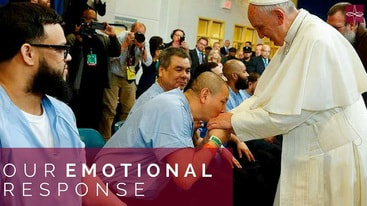

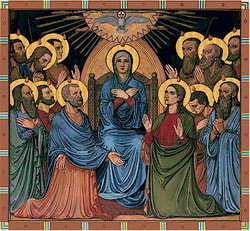

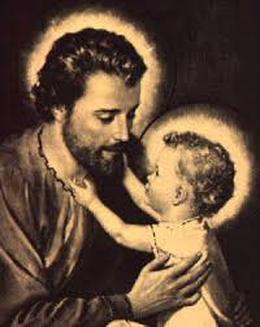

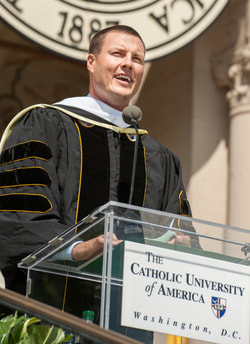
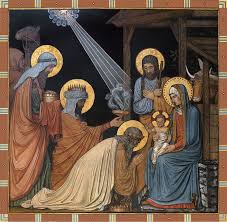


 RSS Feed
RSS Feed